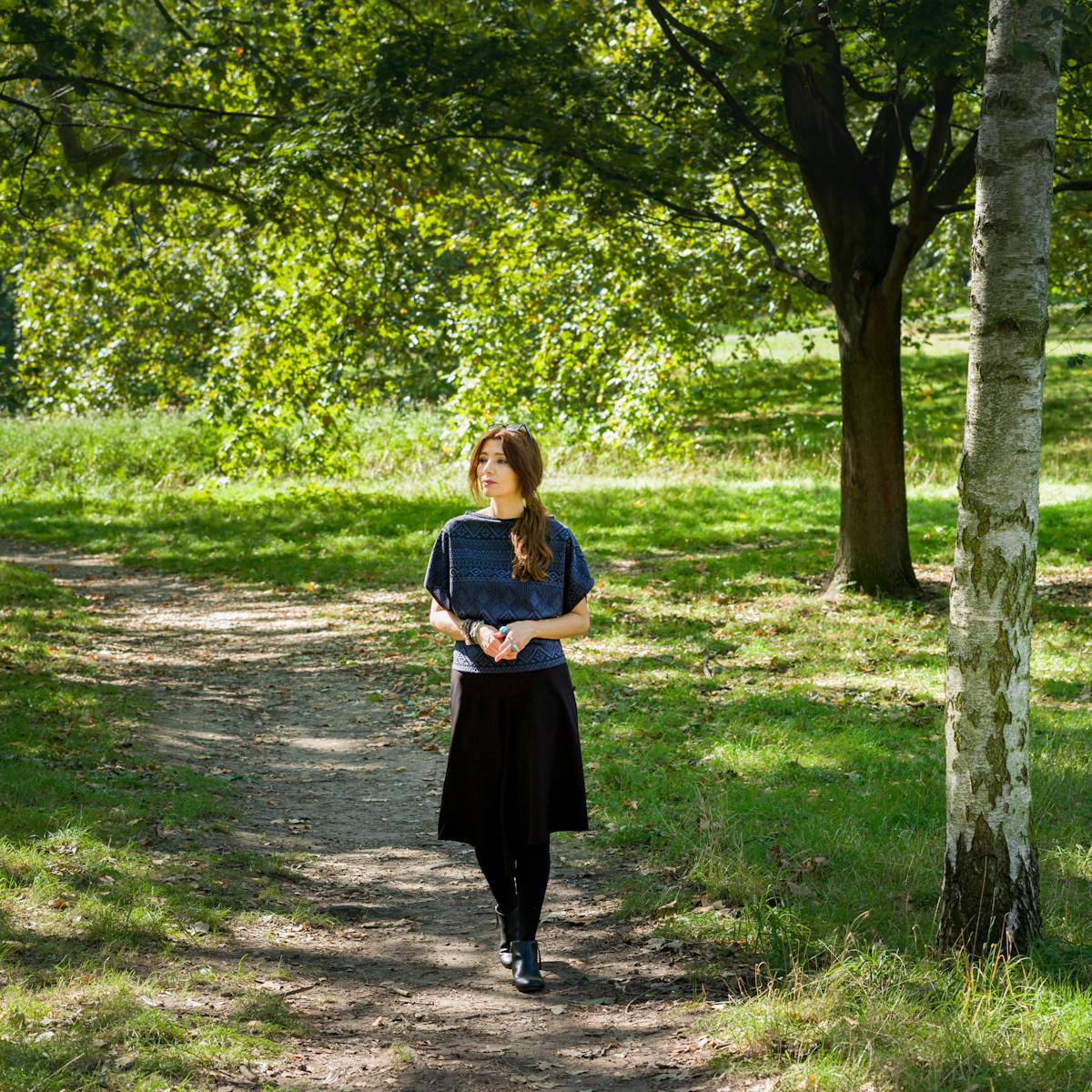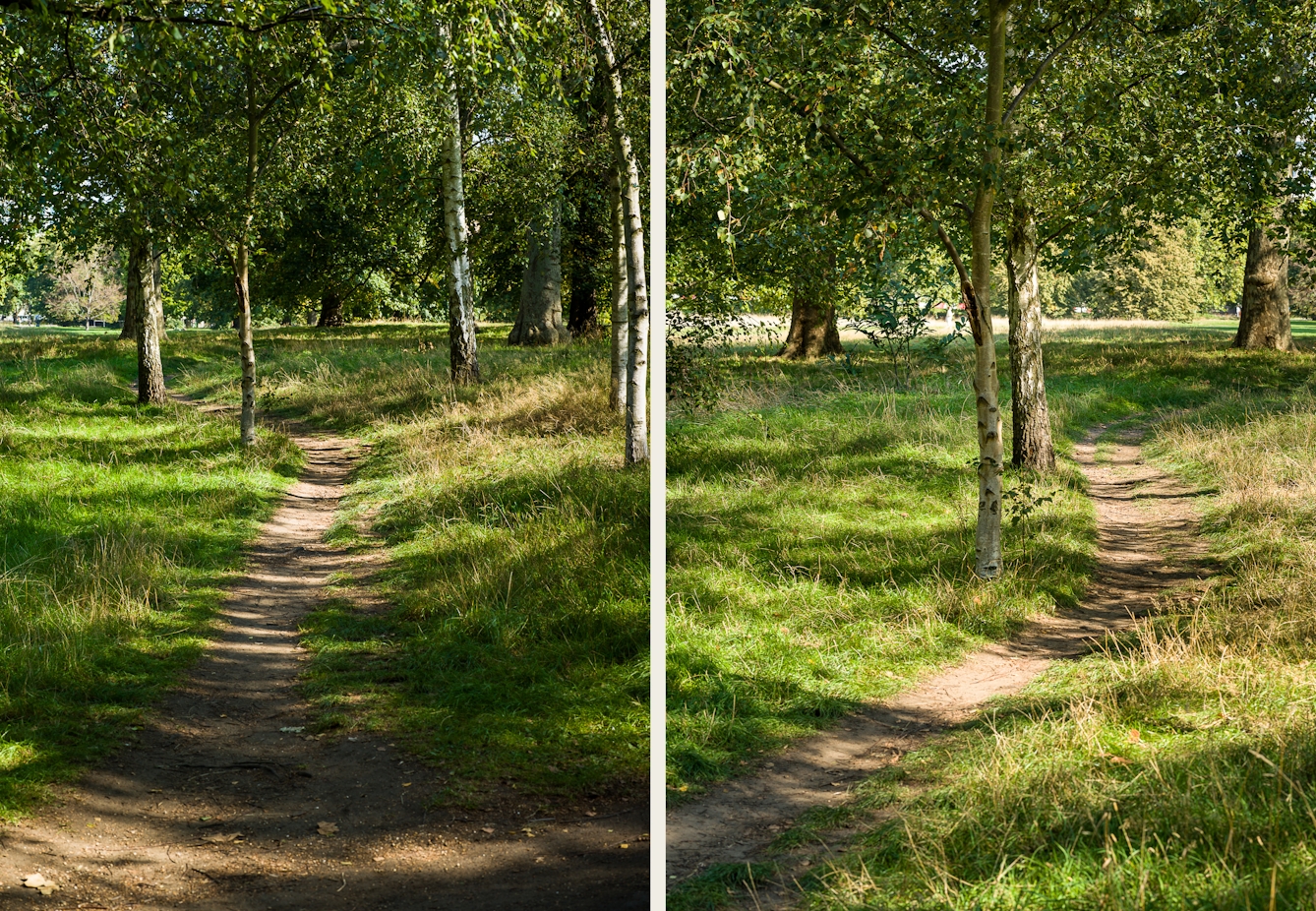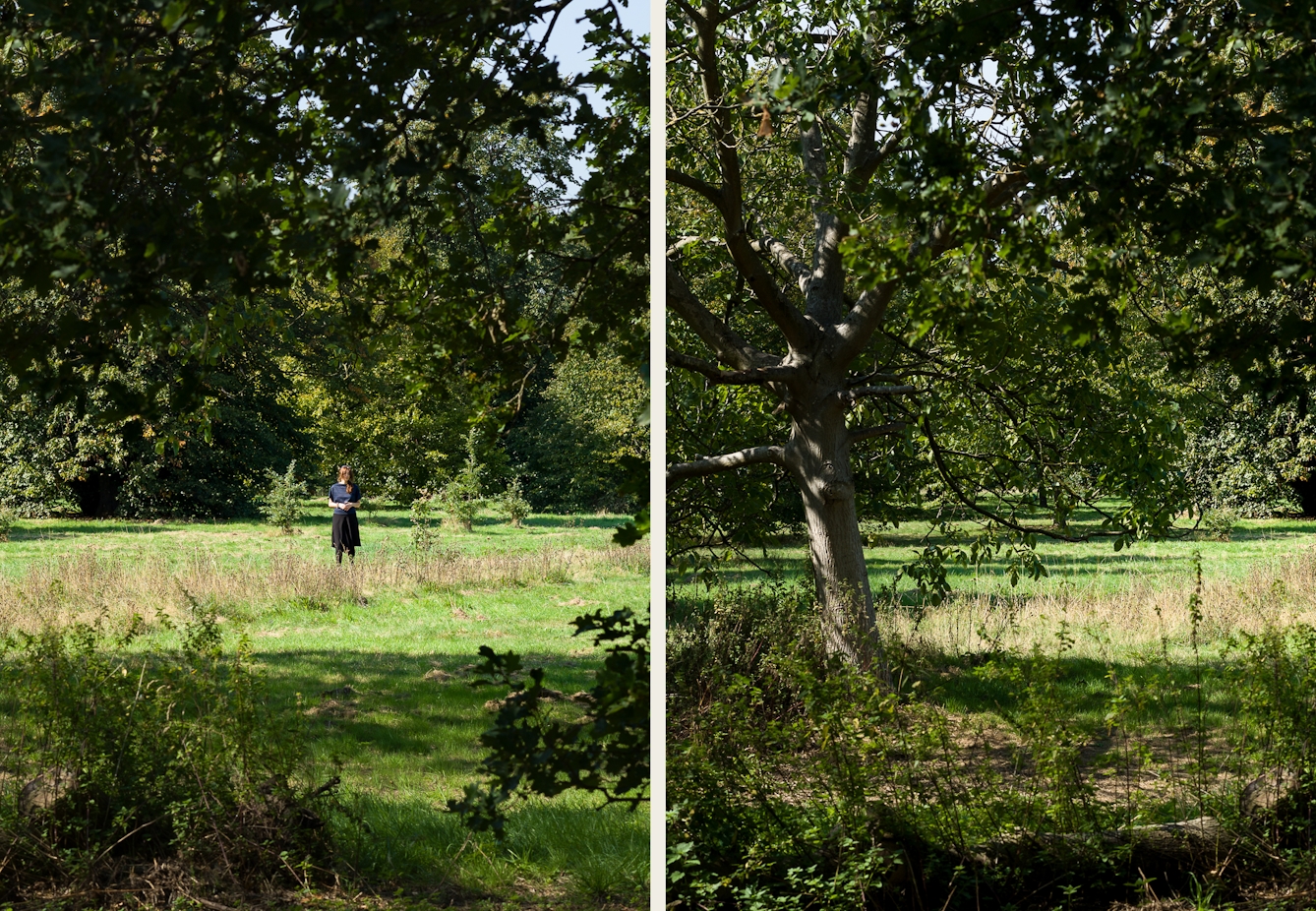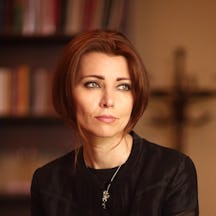Ours is an age of contagious anxiety. We can feel overwhelmed by the events around us, by injustice, by suffering, by an endless feeling of crisis. In ‘How to Stay Sane in an Age of Division’, Booker Prize-nominated novelist and activist Elif Shafak makes an uplifting plea for conscious optimism. In this extract she considers how hard it is to be heard in our divided world, but how listening to each other can nurture wisdom, connection and empathy.
How stories bring us together
Words by Elif Shafakphotography by Steven Pocockaverage reading time 5 minutes
- Book extract

As the coronavirus swept round the globe killing hundreds of thousands, putting millions out of work and shattering life as we knew it, board signs appeared randomly in public parks across London. “When all this is over, how do you want the world to be different?” the signs asked.
What “all this” meant was not explicit in the question; passers-by were expected to work out for themselves what it implied – this sudden disruption of our daily routine, this sense of being caught in the swell of uncertainty and the fear of what is to come, this major global health crisis with long-term economic, social and possibly political consequences, this tunnel that we, as humanity, must go through without any easy guesses as to how or when it would end or whether another outbreak of a viral disease might happen again in the near future.
The boards were deliberately left blank so that underneath the question people could write their own answers, and many had. Of all the comments scribbled hastily there, one in particular stayed with me. Somebody had etched out in bold letters, “I want to be heard.”
When all this is over I want to live in a different world where I can be heard.
It was a personal cry. But, in many ways, it felt like a collective cry too. “Who, if I cried out, would hear me among the angels’ hierarchies?” asked the poet and novelist Rainer Maria Rilke in his ‘Duino Elegies’, written and published in the earlier part of the 20th century.

“Who, if I cried out, would hear me among the angels’ hierarchies?”
Unheard voices
It was a different time back then. Today, in the 21st century, in a deeply divided and increasingly tangled world, craving dignity and equality, overwhelmed by the speed of change and the acceleration of technology, our shared feeling is, “Who, if I cried out, would hear me among the humans’ hierarchies?”
People who have much to say, a distinctive story to tell, often do not do so because they fear their words will fall on deaf ears. They feel excluded from political power and, to a large extent, from political and civic participation. Even if they were to shout their grievances from the rooftops of Westminster – or Brussels or Washington or New Delhi – they doubt it would have the slightest impact on public policy.
Not only management and authority, power and wealth, but also data and knowledge are increasingly concentrated in the hands of a few – and a growing number of citizens feel left out, not so much forgotten as never noticed in the first place. As their disillusionment deepens, so does distrust even in the most basic institutions. More than half of the people living in democracies today say their voice is ‘never’ or ‘rarely’ heard.

"People who have much to say, a distinctive story to tell, often do not do so because they fear their words will fall on deaf ears."
If this is the general mood in the relatively democratic countries, imagine how much higher that percentage would be in authoritarian regimes where there is no transparency and a single narrative is imposed from above, stifling any form of dissent. Added together, that is a lot of voiceless people.
And the biggest irony is that all this is happening at a time when we as humans – regardless of race, gender, religion, class or ethnicity – are supposed to be more connected and empathetic and free than ever before, with far more opportunities at our disposal to express ourselves than our grandparents could have dreamed of, given the proliferation of both digital and media platforms. How is it possible then that in an era when social media was expected to give everyone an equal voice, so many continue to feel voiceless?
Silenced and alienated
To be deprived of a voice means to be deprived of agency over our own lives. It also means to slowly but systematically become alienated from our own journeys, struggles and inner transformations, and begin to view even our most subjective experiences as though through someone else’s eyes, an external gaze.

"To be deprived of a voice means to be deprived of agency over our own lives."
“There is no greater agony than bearing an untold story inside you,” wrote the poet, author and civil rights activist Maya Angelou. In the present circumstances, for a whole variety of reasons, a similar agony is experienced by many across the globe, east and west, north and south. Stories bring us together; untold stories keep us apart.
We are made of stories – those that have happened, those that are still happening at this moment in time, and those that are shaped purely in our imagination through words, images, dreams and an endless sense of wonder about the world around us and how it works. Unvarnished truths, innermost reflections, fragments of memory, wounds unhealed.
Not to be able to tell your story, to be silenced and shut out, therefore, is to be dehumanised. It strikes at your very existence; it makes you question your sanity, the validity of your version of events. It creates a profound and existential anxiety in us. In losing our voice, something in us dies.
‘How to Stay Sane in an Age of Division’ is out now.
About the contributors
Elif Shafak
Elif Shafak is an award-winning British-Turkish writer, storyteller, essayist, academic, public speaker and activist. She writes in both Turkish and English, and has published 17 books, 11 of which are novels. Her work has been translated into 50 languages. Her latest novel, ‘10 Minutes 38 Seconds in this Strange World’, was shortlisted for the Booker Prize and RSL Ondaatje Prize, and chosen as Blackwell’s Book of the Year. An advocate for women’s rights, LGBT rights and freedom of speech, Shafak is an inspiring public speaker and twice TED Global speaker, each time receiving a standing ovation. In 2017 she was chosen by Politico as one of the 12 people “who will give you a much-needed lift of the heart”.
Steven Pocock
Steven is a photographer at Wellcome. His photography takes inspiration from the museum’s rich and varied collections. He enjoys collaborating on creative projects and taking them to imaginative places.

